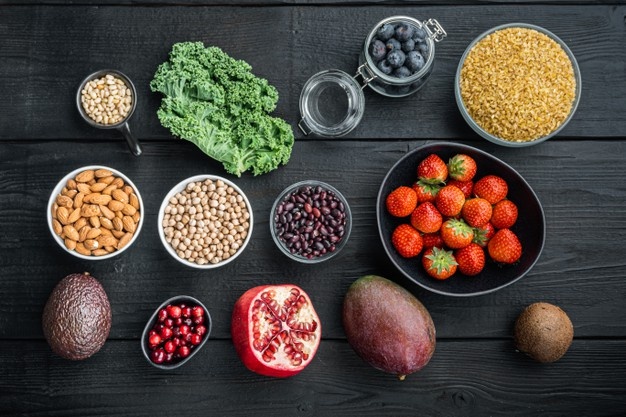Is Grains and Vegetable Good Nutrition for Over 65?
Yes, grains and vegetables can be excellent components of a healthy and well-balanced diet for individuals over 65. However, before you consider and or begin any dietary changes we suggest you ask your qualified doctor and or nutritionist before changing any dietary habits.
As people age, their nutritional needs may change, and it becomes crucial to focus on nutrient-dense foods that support overall health and well-being. Here are some reasons why grains and vegetables are beneficial for older adults:
Essential Nutrients: Grains and vegetables are rich in essential nutrients, including vitamins, minerals, fiber, and antioxidants. These nutrients play a vital role in maintaining optimal health, supporting the immune system, and reducing the risk of chronic diseases.
Sources of Dietary Fiber: Both grains and vegetables are excellent sources of dietary fiber. Adequate fiber intake can help promote digestive health, regulate blood sugar levels, and contribute to a feeling of fullness, which may be beneficial for weight management.
Maintaining a Healthy Heart: Whole grains, such as brown rice, quinoa, and oats, have been associated with heart health. They contain soluble fiber, which can help lower cholesterol levels and reduce the risk of heart disease. Vegetables, particularly those high in potassium (e.g., leafy greens), may also contribute to heart health.
Strengthening Bone Health: Some vegetables, such as broccoli and kale, are rich in calcium, which is essential for maintaining bone health. Additionally, whole grains may contain magnesium and other minerals important for bone strength.
Chronic Condition Management: A diet rich in vegetables and whole grains has been linked to a lower risk of developing chronic conditions such as type 2 diabetes and certain cancers. For older adults, focusing on these foods may contribute to better disease management and prevention.
Weight Management: As metabolism tends to slow down with age, it becomes important to maintain a healthy weight. Vegetables and whole grains are nutrient-dense and can be part of a balanced diet that supports weight management.
It’s important to note that individual nutritional needs vary, and consulting with a healthcare professional or a registered dietitian is recommended to create a personalized nutrition plan based on specific health conditions, dietary preferences, and lifestyle factors. Additionally, staying hydrated and incorporating a variety of nutrient-rich foods from different food groups is key to meeting overall nutritional needs.
Contact Us Today!
If you wish to feel your best, have more energy and stamina throughout your day, eat what you love while sleeping better, reshaping your desired body, prevent body pains and not waste more time trying to figure out diets and workout plans that don’t work or take up too much of your time and lifestyle, visit our website at https://superslowla.com/or Call Today! (310) 471-1300 for a Free workout or for more information.




